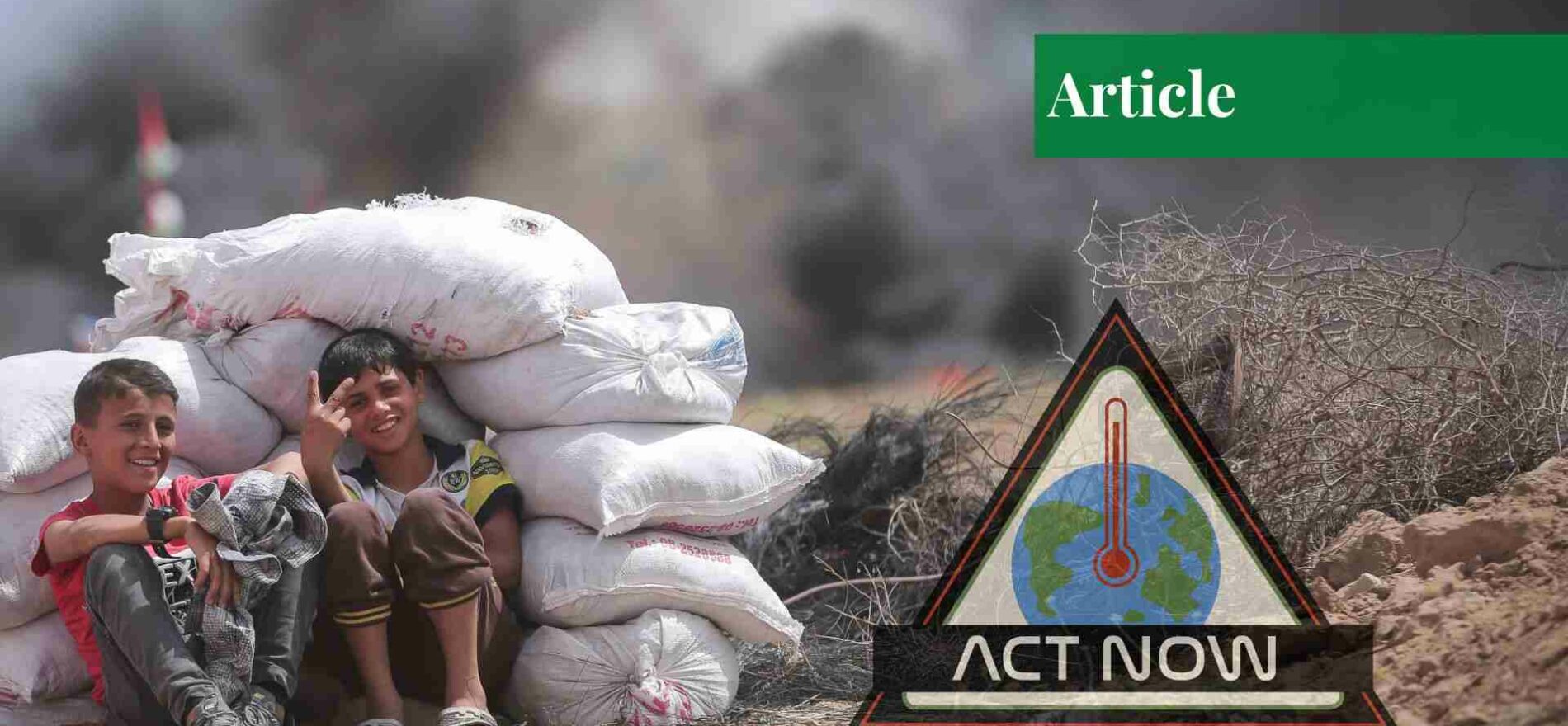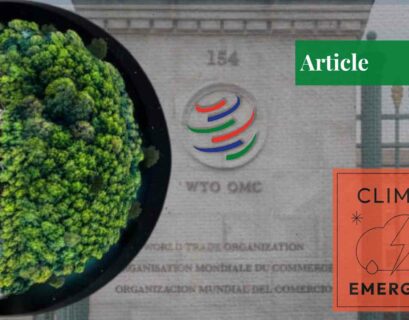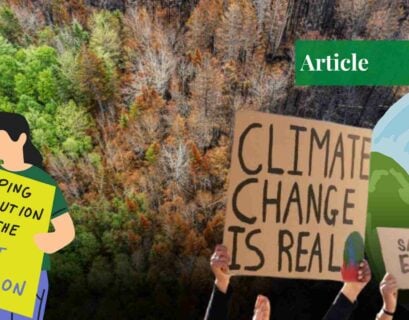Introduction
COP28, held in Dubai in December 2023, marked a critical moment in the fight against climate change. The conference focused on assessing progress under the Paris Agreement and establishing a decisive course of action to secure a sustainable future. The summit inaugurated the Loss and Damage Fund to support developing nations impacted by climate change. Moreover, a landmark agreement was reached to set the trajectory for the gradual phasing out of fossil fuels for a cleaner future with net-zero emissions by 2050.
This commitment was reinforced by a pledge to triple global renewable energy capacity by 2030, marking a substantial move towards cleaner energy sources. Acknowledging the importance of private investments, COP28 introduced a $30 billion private market capital dedicated to supporting low-carbon and climate-resilient projects, particularly in emerging economies. Although ambitious goals for collaborative environmental solutions were set at COP28, ongoing conflicts around the world, particularly in the Middle East, threatened to undermine their implementation.
Middle East’s Vulnerability to Climate Change
The relationship between conflict, the military and climate change is reciprocal. When resources shrink under the strain of the changing climate, communities compete for limited resources, increasing the risk of conflict. Climate change acts as a threat multiplier amplifying the existing social, economic, and political tensions contributing to conflict.
Even attempts to fight climate change can have unforeseen local consequences, potentially intensifying existing conflicts by reshaping social and economic realities. At the same time, conflict itself can also contribute to environmental degradation and exacerbate climate change. Conflict extends beyond burning oil fields, impacting the climate through mass refugee displacements and land degradation.
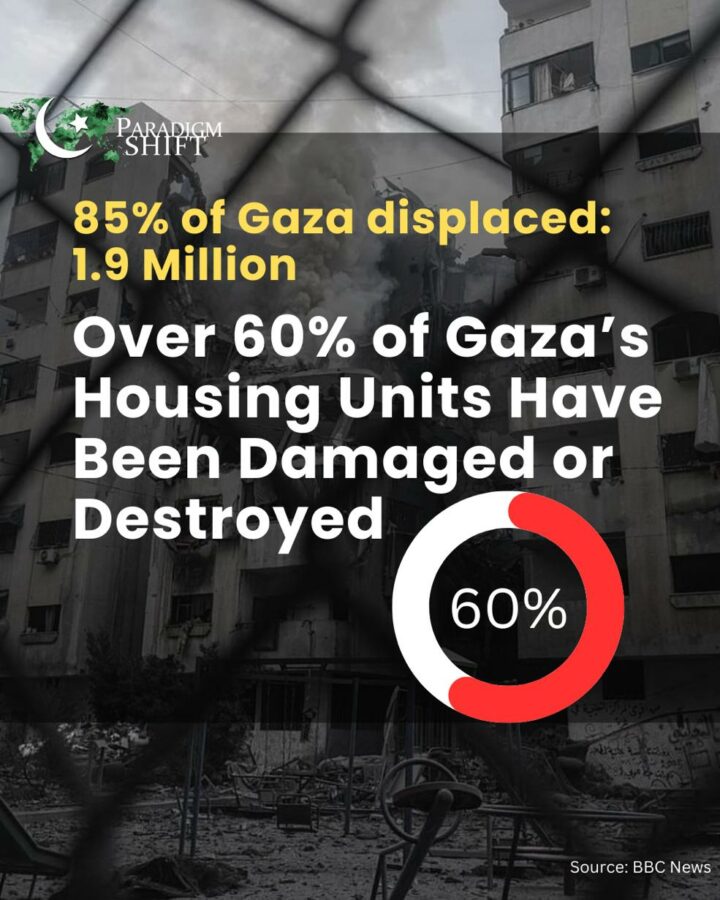
The Middle East is exceptionally susceptible to climate change, with significant impacts on water supplies, food production, and potential security concerns. The countries anticipate a 50% per capita water availability reduction by 2050, with the UAE’s freshwater resources facing a risk of depletion in 50 years. A Lancet study projects a substantial rise in heat-related deaths in the Middle East and North Africa by 2,100, with Iraq potentially experiencing 138,000 annual fatalities due to increased temperatures.
Similarly, the Levant region confronts an impending collapse of food and water systems. Climate-induced water scarcity aggravates regional tensions and resource competition, as evident from the case of the southeastern Anatolia project, which has choked the Tigris and Euphrates rivers, sparking tensions with downstream nations like Syria and Iraq.
The Climate Impact of the Israeli War in Gaza
Since 2022, the Middle East has witnessed 107 water conflicts, 60% of which were fueled by the Israel-Palestine military tensions. In the West Bank, Israeli forces have repeatedly destroyed Palestinian water systems, complicating the crisis. Beyond the Israeli-Palestinian tensions, the Middle East has witnessed deadly clashes over water resources in Yemen, bombings of infrastructure in Syria, and violent protests in Iraq.
In addition to these challenges, the ongoing Israeli war in Gaza has been intensified by major environmental concerns, particularly the persistent impact of the illegal 16-year blockade imposed by Israel, affecting the entire population. In addition to the shortage of drinking water, the restrictions on essential goods have raised concerns over the short- and long-term health challenges, as the consequent humanitarian disaster involves massive displacements without appropriate housing, water, food, or healthcare.
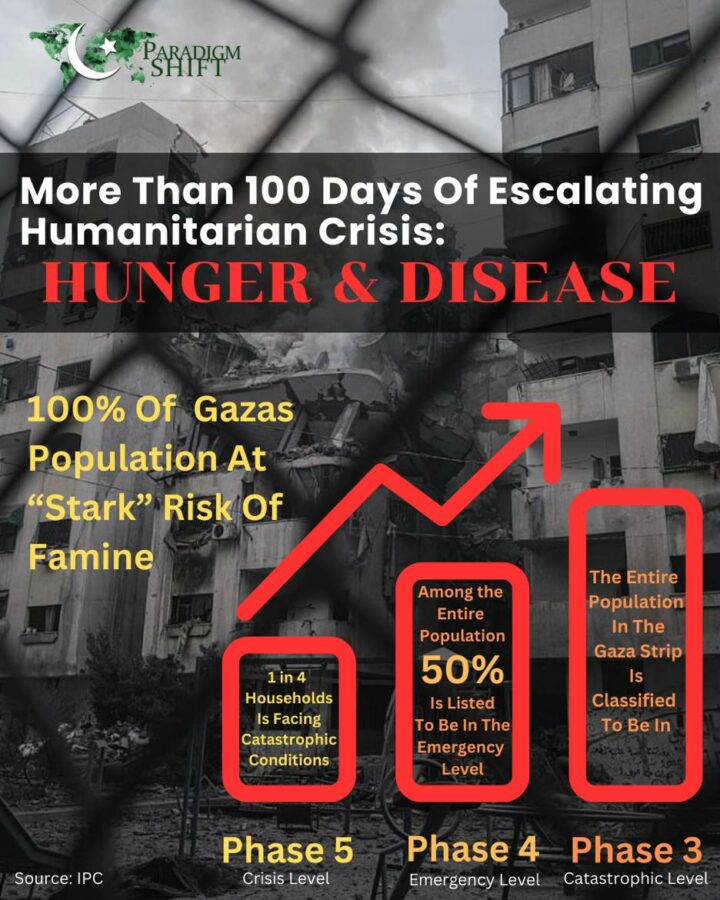
The environmental impact of the ongoing violence in Gaza is not a minor concern. In the four months since the beginning of this war, Israel has used numerous munitions which have resulted in the deaths of more than 27,000 people, many of whom remain trapped under collapsed structures. The use of white phosphorus by Israel in the military operations in Gaza and Lebanon will also have a long-lasting environmental impact, including the destruction of vegetation and contamination of soil, in addition to significant harm to the population and their surroundings.
The damaged water sanitation and hygiene infrastructure increases not only the risk of flooding but also the spread of diseases like cholera. Fossil fuel burning to excessive carbon emissions; the munitions alone produce as many emissions as thousands of homes and vehicles do annually. Any reconstruction process in the future will also generate massive carbon emissions.
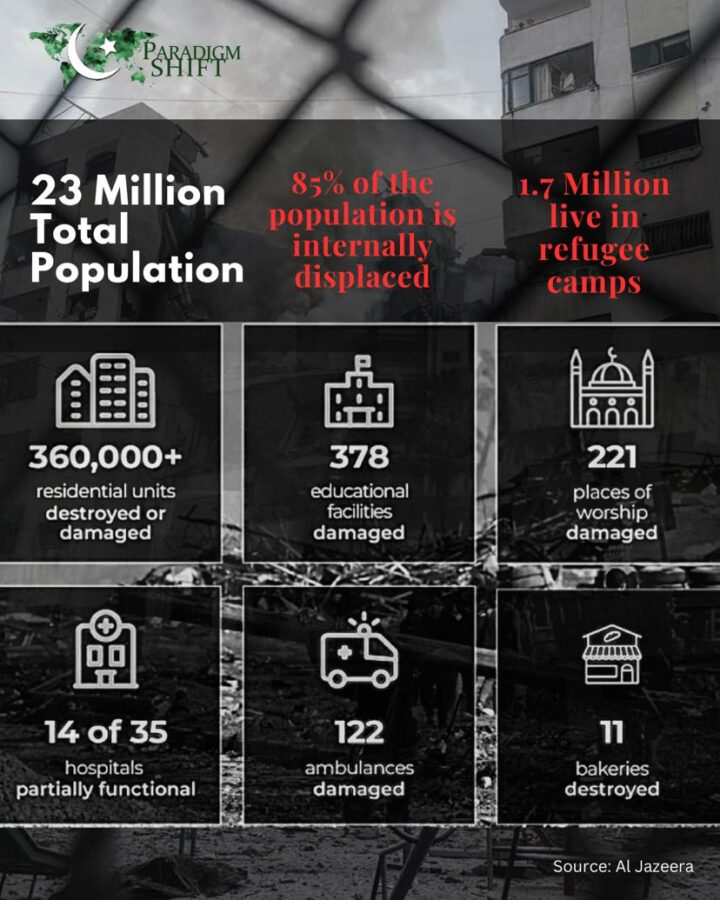
The Israeli military response has forced the displacement of Palestinians from Gaza, raising immediate concerns about the welfare of displaced populations. The subject of displacement has also strained relations between Israel and neighboring countries, with Jordan withdrawing from agreements with Israel due to ethical concerns amid ongoing violence in Gaza.
Furthermore, in early January, the US and UK conducted air strikes in Yemen in response to the latter’s attacks on commercial and military ships to compel Israel to cease atrocities in Gaza. Concerns have been raised about the strikes’ environmental impact, which includes air and water pollution and the destruction of local ecosystems and infrastructure. The Israeli war in Gaza is shifting the focus to short-term priorities, away from long-term threats like climate change. The economic instability following the war could lead to the sidelining of climate efforts in favor of security and recovery.
COP28 and the Israeli War in Gaza
At COP28, a few leaders like Recep Tayyip Erdogan and Cyril Ramaphosa criticized Israel’s bombardment of Gaza as “war crimes.” The Colombian president, Gustavo Petro, labeled it “genocide and barbarism unleashed on the Palestinian people.” Moreover, the Iranian delegation led by Energy Minister Ali Akbar Mehrabian withdrew from the conference in protest against Israel’s participation, citing it as inconsistent with the objectives and principles of the COP.
The UN secretary-general, Antonio Guterres, also pointed out that conflicts are causing immense suffering and emotions. “We just heard the news that the bombs are sounding again in Gaza. And climate chaos is fanning the flames of injustice,” he remarked. However, the formal agenda of the conference was limited, despite the concerns raised by political leaders and activists explicitly linking climate justice with the rights of Palestinians and calling for a ceasefire.
The agenda and negotiations remained oblivious to the urgency of the situation and the impact of militarization on the global climate. The Colombian environment minister, Maria Susanna Mohamad, noted a disconnect between discussions at COP and the situation in Gaza and the West Bank. She remarked that the issues in these regions were disregarded, as if “nobody cares.”
Conclusion
Although climate action rightfully dominated discussions, the wider environmental impact of the regional conflicts was neglected. The destruction of infrastructure and resources and military activities directly contribute to environmental degradation. The absence of explicit environmental discussions during such events indicates a very concerning detachment from the broader discourse on climate.
The lack of consideration of geopolitical factors within the climate justice narrative at COP28 limited its effectiveness in addressing the interconnected global climate-related challenges. The exclusion highlights a lack of understanding of the direct link between a commitment to climate justice and the geopolitical realities influencing it. The absence of substantial discussions on the subject represents a missed opportunity to utilize the conference at such a time to tackle pressing global issues that cannot be solved in isolation.
If you want to submit your articles and/or research papers, please check the Submissions page.
The views and opinions expressed in this article/paper are the author’s own and do not necessarily reflect the editorial position of Paradigm Shift.
